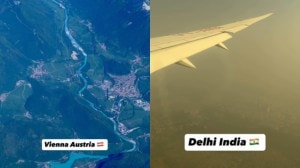Volkswagen steps up investment in world no.1 bid
The Volkswagen Group is investing a record amount in forward-looking projects
Germany’s Volkswagen will invest more than ever before in the coming five years,as it seeks to overtake General Motors and Toyota as the world’s biggest auto maker within the decade.
VW,already Europe’s largest car maker,aims to sell more than 10 million vehicles by 2018 and achieve a pre-tax profit margin north of 8 percent,which would equate to a return on investment in their core Automotive Division of over 16 percent.
The Volkswagen Group is investing a record amount in forward-looking projects to achieve its goal of becoming the world’s best automobile manufacturer,chief executive Martin Winterkorn said on Friday.
Volkswagen met a setback in its bid to dominate the industry when Japan’s Suzuki Motor said earlier this week it wanted to end an alliance that would have boosted the German group’s small-car presence in India .
Earlier this month VW also said it called off a merger with financial holding Porsche SE this year because of legal issues and was now examining other options to integrate the holding’s 51 percent stake in Porsche sports cars.
Although VW’s supervisory board meets every autumn to decide on the rolling investment plan — commonly targeting an annual ratio of 6 percent to revenue — this year’s 62.4 billion euros ($86 billion) plan represents a significant jump compared with the 51.6 billion euro investment over five years targeted last November.
The overall figure sounds spectacularly high,but one has to remember that 4-5 percent capex-to-sales ratios are relatively normal in the industry,said UniCredit analyst Georg Stuerzer,pointing to a figure that has fluctuated between 4.6 and 6.6 percent at VW between 2007 and 2010.
According to data from annual reports,VW’s capital expenditure at its core Automotive Division amounted to 5.0 percent of sales last year,less than the 6.0 percent rival Daimler invested in its Mercedes-Benz cars division.
CHINA
While investments relative to size can help determine sustainable cash spending,car makers like Volkswagen that are growing fast may look as if they are underinvesting when their revenue exceeds projections.
This safeguards jobs for the long-term,said Volkswagen’s top labour leader,Bernd Osterloh,referring to the proposed rolling five-year plan.
Investment in property,plant and equipment will account for 49.8 billion euros from 2012-16,of which 57 percent will be invested in the company’s German home market.
The bulk of overall capex,some 32.7 billion,will be invested in VW’s core Automotive Division.
As a result,annual capex in automotive operations will run at about 6 percent of yearly revenue on average,VW said.
A further 11.6 billion euros will come from capitalised development costs,while the remaining 1 billion euros should come in the form of net changes in its asset portfolio.
Not included in the 62.4 billion euro figure are the investments to be made by VW’s two Chinese joint ventures,which will be funded through their own cashflows.
Shanghai-Volkswagen Automotive and FAW-Volkswagen Automotive,based in Changchun,will invest 14.0 billion euros in new production facilities and products in 2012-2016,VW said.
VW owns 50 percent of Shanghai-Volkswagen and 40 percent of FAW-Volkswagen.



- 01
- 02
- 03
- 04
- 05




























